






Hello!
If you’ve read Potential magazine before, you’ll notice this issue has a new look and a new name—a refresh, as we call it. You’ll find stories from all over the Institute, from our clinics and schools, to our employees, donors and beyond. We’ve also updated the magazine’s design to make it both more eyecatching and easier to read.
With the new school year just around the corner, we offer three stories that will take you into the classrooms of a few of our patients. Read about how Andrea finally found the school for her—Kennedy Krieger High School, and about Zane’s and Maddi’s first days of school. Right off, Zane showed everyone how he uses his iPad to communicate. Maddi has loved school from Day 1 and is just so thrilled to be there.
Maddi’s story particularly resonates with me. Diagnosed with a fast-growing type of cancer six months before her first day of kindergarten, she received chemotherapy directly into her spinal canal—a necessary treatment, but one that can have neurological side effects. As the parent of a child who has also experienced cancer, I know what it’s like for Maddi and her parents, Amanda and Megan, to have their lives uprooted by a life-threatening medical condition, and to work so hard to help their child live life to the fullest. I’m forever honored to work at Kennedy Krieger, and so proud of our staff members who help families like Maddi’s.
I hope you enjoy this issue of Kennedy Krieger Magazine, and I value your feedback. You can always reach me at CEO@KennedyKrieger.org —I hope to hear from you! With my best wishes to you for a wonderful summer and fall,
Summer 2023 | Volume 23, No. 1
EDITOR
Laura Thornton
ART DIRECTOR
Erin Parsons
CREATIVE SERVICES DIRECTOR
Sarah Mooney
DESIGNER
Tom Czajkowski
PHOTOGRAPHY
Harry Bosk, Robin Sommer and others
PROOFREADER
Nina K. Pettis
AVP MARKETING, PR AND COMMUNICATIONS

Lisa Nickerson
MEDIA INQUIRIES
Jessica Gregg
SOCIAL MEDIA
Katie Willmott
PUBLICATION INQUIRIES
443-923-7330 or TTY 443-923-2645
Kennedy Krieger Magazine is published by the Marketing and Communications Department of Kennedy Krieger Institute, 707 North Broadway, Baltimore, Maryland 21205. Kennedy Krieger Institute recognizes and respects the rights of employees, trainees, and patients and students, and their families.
Kennedy Krieger Institute is a 501(c)(3) nonprofit organization committed to improving the lives of individuals with nervous system disorders through medical care, education and community programs. Email us at Magazine@KennedyKrieger.org to update your contact or mailing information. Send an email to Unsubscribe@KennedyKrieger.org or visit KennedyKrieger.org/Unsubscribe to unsubscribe from future Kennedy Krieger Institute communications. © 2023 Kennedy Krieger Institute
Bradley L. Schlaggar, MD, PhD President and Chief Executive Officer The Zanvyl Krieger Faculty Endowed Chair
The Zanvyl Krieger Faculty Endowed Chair
On the cover: Maddi enjoys playing outside, riding bikes, chasing butterflies and spending time with her family.

A rare genetic disease caused Zane to lose his speech. Kennedy Krieger helped him get his voice back.
Maddi’s heart was set on kindergarten. Kennedy Krieger made sure cancer wouldn’t get in the way.

Michael Burkom has donated to Kennedy Krieger for years. The Institute’s patients and students are his heroes.

A dedicated team of specialists provides Andrea the trauma-informed care she needs to learn and thrive.

A rare genetic disease caused Zane to lose his speech. Kennedy Krieger helped him get his voice back.
Zane, 5, loves to talk. He’s super social and loves meeting people and learning new things. On his first day of prekindergarten last fall, he told his teachers all about the planet Mars. He introduced himself to the vice principal and asked him for a selfie. Zane added the selfie to the customized communication app he uses on his iPad to communicate.
Three years before, when Zane was 2, he’d suddenly gotten very sick. As he was recovering, his parents, Mary and Taibeen, noticed he’d lost language skills, as well as gross and fine motor skills. Genetic testing revealed he had Aicardi-Goutières syndrome (AGS), a rare disease that can affect the brain’s white matter. Zane’s illness was most likely an overactive immune response to his own body caused by the AGS mutation.

Zane’s doctors referred him to Kennedy Krieger Institute for speech therapy. Through the Institute’s Specialized Transition Program, a neurorehabilitation day hospital, he began weekly sessions with speechlanguage pathologist Lynnley Moore in May of 2020— by telehealth, as the pandemic was still in its early stages. It was exactly what Zane needed—soon, he was saying short sentences again.
But Zane’s mind was moving faster than his mouth could keep up—he needed another way to communicate. Moore suggested a personalized hightech speech-generating device with pictures and words that Zane could touch, and the device would say those words aloud.
“We weren’t sure if he’d use the tablet, but wanted to give it a try,” Mary says. The first day Zane had the
device, he talked with it on the car ride home to Annapolis for a few minutes. Then he was silent. At home, Mary saw the volume had somehow been turned off, and in response, Zane had written “mad” several times by clicking on the “mad” face. “I knew then that this device was just what Zane needed.”
Zane loves reading books, keeping up with the latest episodes of his favorite cartoons, and talking about everything he’s read and seen. When he comes across a new character, he’ll ask his parents to add the character’s name to the device, indicating exactly how he wants that name filed.
“It’s really interesting to see how he troubleshoots when there’s a word he’s looking for that’s not on the device,” says Taibeen, who sits on the steering committee of the AGS Advocacy Association. “He’ll come up with an approximation, like ‘water’ and ‘lemon’ for ‘watermelon,’ and he’ll let us know it’s not quite right.”
Zane no longer needs to receive services from Moore, although he continues to do speech, physical and occupational therapies at school. “He’s done so amazingly well,” Mary says. “Without the support from Kennedy Krieger, he wouldn’t be where he is now.”
“Without the support from Kennedy Krieger, he wouldn’t be where he is now.” – MaryZane (center) with his parents, Mary and Taibeen, and sisters, Sabrina (far left) and Aliya Upper left and lower right photos courtesy of Sarah Bosma and SJB Photography.
Michael Burkom has donated to Kennedy Krieger for years. The Institute’s patients and students are his heroes.
When Michael Burkom retired from his career with the federal government, he decided that for the rest of his life, he just wanted to help others.
“It’s a giving-back thing,” he says.
Now Michael, 73, spends his days volunteering with Meals on Wheels and the Maryland SPCA. He was a driver for Jewish Community Services, taking people without transportation to medical and other appointments, before the organization suspended the program at the start of the pandemic. And he’s exploring opportunities to volunteer at Kennedy Krieger Institute.
He already volunteers for the Institute’s annual ROAR for Kids fundraiser, and has been a recurring donor for many years. He began giving to the Institute when his 9-year-old grandnephew started receiving services there, but Michael finds inspiration to give in all of its patients and students.
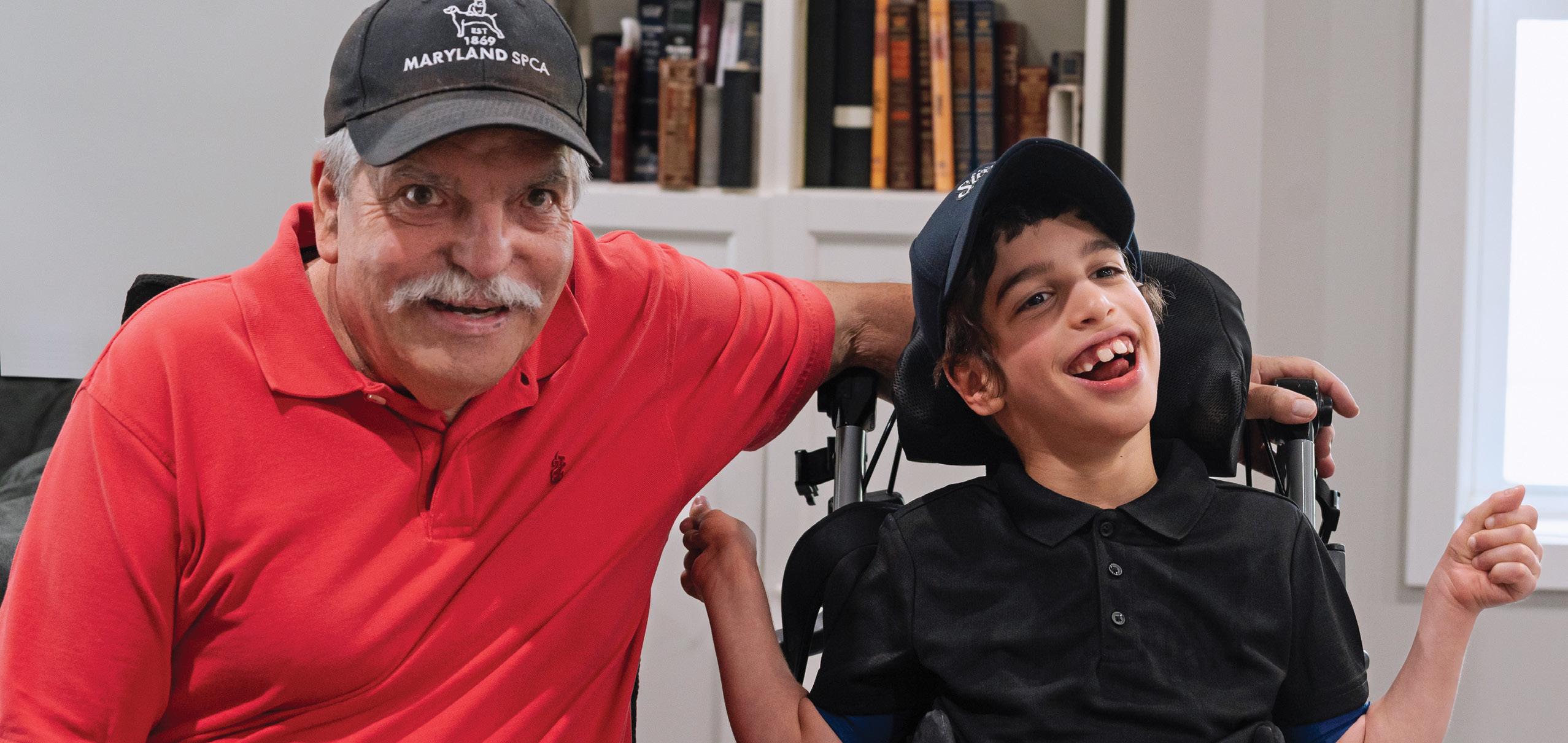
“When you’re a little kid, your heroes might be sports figures. But now, when I think what these little kids are going through…they’re the real heroes,” Michael says.
“While we may mope because our neighbors can afford a better car than us, or because others are more talented than we are, the kids at Kennedy Krieger are thankful for a new piece of apparatus
that allows them to move independently or communicate with others,” he says. “While we complain because we feel underappreciated at work, the kids at Kennedy Krieger are more than thankful because they’ve learned how to become functioning members of society, not even thinking of the great challenges they’ve faced to reach that point.”
A Baltimore native, Michael loves spending time with his family. His grandnephew has cerebral palsy and uses an eye gaze-tracking device to communicate. “He’s gotten really, amazingly good at using it,” Michael says. “He’s really something.”
Michael also loves his retirement avocation of helping others. “The reward is that you’re not just doing it for someone else—you’re doing it for yourself,” he says. “There’s so much joy in giving. If someone asked me if I’d rather be spending my time and money on something else, I’d say, ‘No. This is what I want to spend my time and money on.’ It’s almost like I can’t explain why it’s so enjoyable.”
“There’s so much JOY IN GIVING .”
– Michael Burkom
A dedicated team of clinicians, teachers and other specialists provides Andrea the trauma-informed care she needs to learn and thrive.
Dr. Lyda Holguin-Gaviria had just returned to work from maternity leave. It was January of 2021, and she was rebuilding her patient list at Kennedy Krieger Institute’s Center for Child and Family Traumatic Stress.
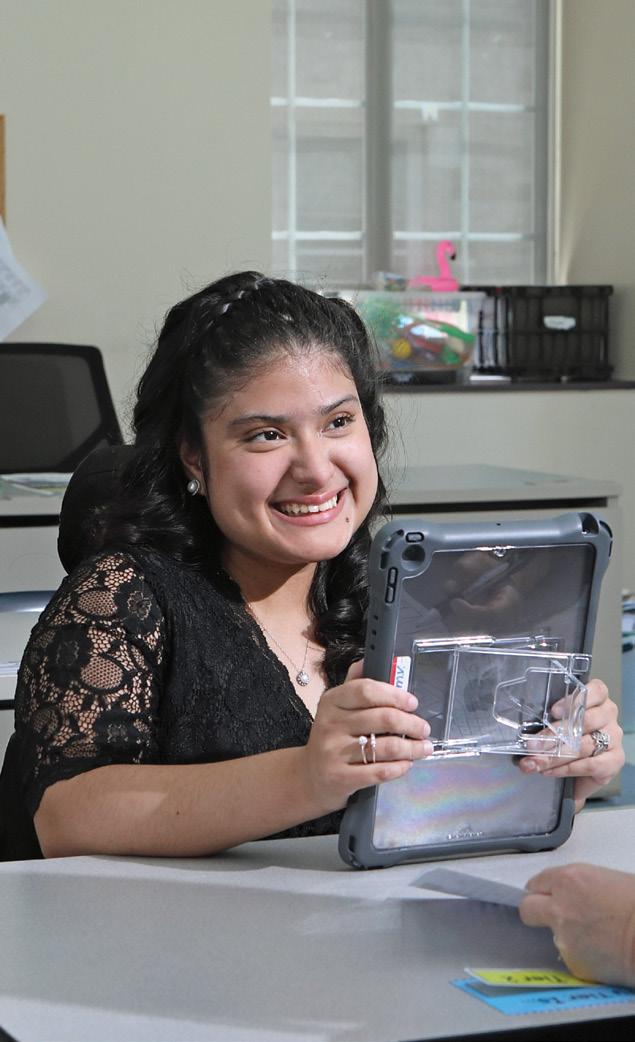

The center’s AVANZA! Clinic, which provides trauma-informed therapy for Spanish-speaking families, had assigned her a new patient—Andrea, a teen who had experienced immigration trauma while moving with her family to the United States. Diagnosed with spina bifida, Andrea also had learning disabilities and daily medical needs. She and her mother, María, primarily spoke Spanish.
“I’d never worked with a patient with so many combined medical and learning needs before,” says Dr. Holguin-Gaviria, a licensed professional counselor who offers services in Spanish as well as English. Andrea, who turns 16 this summer, was on the waiting list for the center’s Horizons Clinic, for patients with medical needs, developmental disabilities and psychological trauma, but at the time, none of that clinic’s providers spoke Spanish. With encouragement from her supervisor, social
work manager Emily Driscoll-Roe, Dr. HolguinGaviria agreed to see Andrea.
Andrea needed a lot of services, but due to the language barrier, it had been hard for María to access them. And Andrea’s history of trauma made it difficult for mother and daughter to put their trust in others. But as Dr. Holguin-Gaviria began working with them, she gradually earned their trust. She also went from doubting whether she was the right therapist for Andrea, to bringing a large and varied group of Kennedy Krieger clinicians, teachers, advocates and other specialists together to help Andrea.
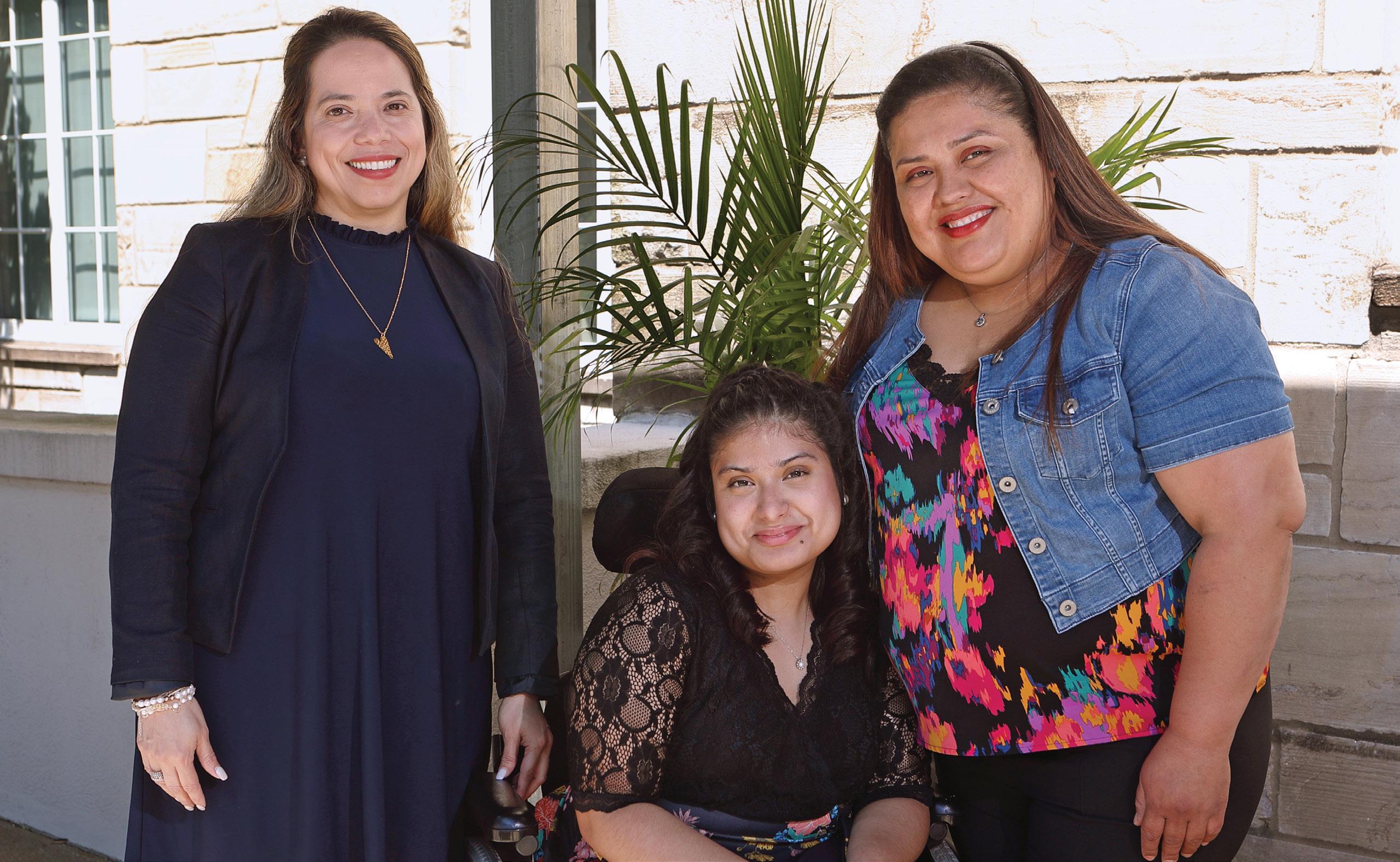
“Working with Andrea has been an amazing experience,” she says.
“The collaboration has been incredible. So many people have come together to make Andrea’s and María’s lives better.”
Andrea’s care team comprises a variety of specialists, many from the Institute’s Philip A. Keelty Center for Spina Bifida and Related Conditions. Neuropsychologist Dr. Christina Love evaluated Andrea in Spanish and English, and her report informed Andrea’s care plan in a culturally responsive manner. Social worker Bridget Payne helped María get a dedicated parking space in front of her home and a placard for her car indicating a need for accessible parking. Physical therapist Megan Holzer coached Andrea in using her power wheelchair and ordered a sit-to-stand device for her to use at home. Nurse coordinator Annie Holm and nurse educators from the Institute’s Specialized Health Needs Interagency Collaboration brainstormed better ways for Andrea to receive medical care at home and at school. Child life specialist Eve Lukowski is helping Andrea cope with medical procedures. Dr. Sarah Korth is Andrea’s pediatric physiatrist and manages her spina bifidarelated medical care.
To encourage collaboration and communication, Dr. Holguin-Gaviria started an email thread for the group. “The immediate response was incredible,” she says. “The email thread helped everyone work together to support each other in achieving good outcomes for Andrea.”
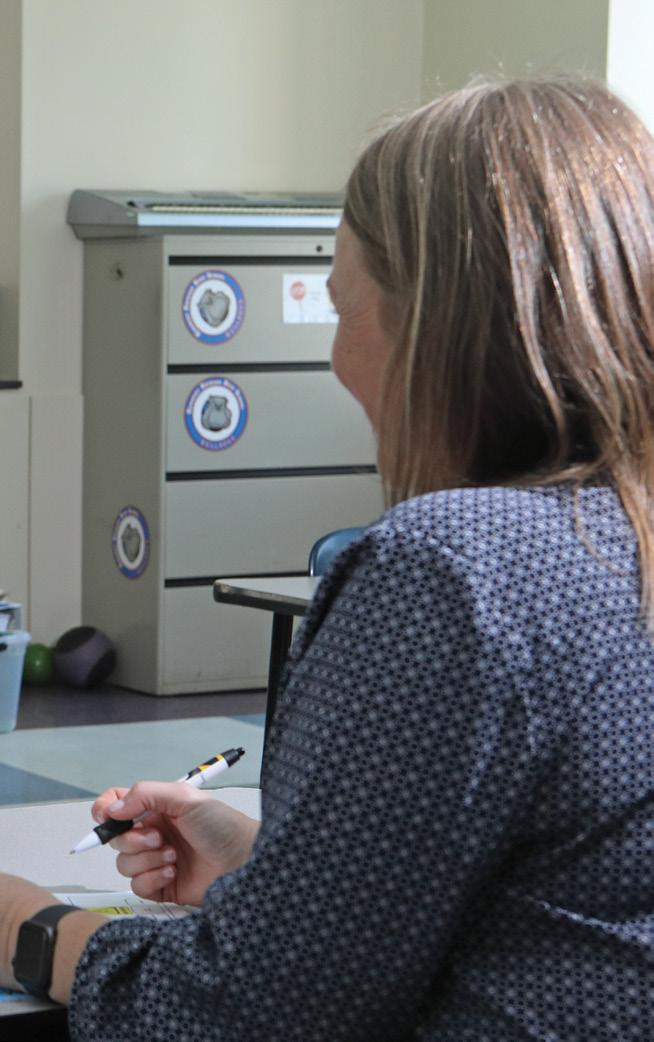
sliding-scale fee for legal services. She met multiple times with representatives of Baltimore City Public Schools. Her advocacy secured Andrea a spot at Kennedy Krieger High School, where she enrolled in early 2023.
Andrea is thriving at Kennedy Krieger High School. She loves talking with classmates and playing the card game Uno® with them at the end of the school day. “I like that there are nice people at school,” she says. Her favorite class is art, and she wants to be a nurse.
“She’s on-board with everything and always tries hard,” says her teacher, Gabriela Bandi. “She considers this a restart—a refresh. Every day, she enters the classroom smiling and waving to everyone.”
María is very thankful. “Kennedy Krieger significa esperanza,” she says—“Kennedy Krieger means hope.”
She also reached out to attorney Mallory Legg, director of the Institute’s Project HEAL (Health, Education, Advocacy, and Law), which provides comprehensive advocacy and civil legal services for patients and their families at Kennedy Krieger. Andrea’s school, which served students with extremely complex needs, was not a good fit for her—neither academically nor socially.
“Andrea wanted to be somewhere where she could be more social,” explains Legg, who secured funding from a private donor to cover a portion of Project HEAL’s
Now that Andrea’s immediate needs are being met, Dr. Holguin-Gaviria is helping her cope with the trauma she has experienced. And while Dr. HolguinGaviria once doubted her ability to help Andrea, she now has a better sense of just how much she’s capable of doing—more than she ever thought possible. She recently joined the Horizons Clinic staff and has become a strong advocate for people with disabilities.
She’s grateful for the opportunity to work with Andrea and others like her. “I get to see the other side of the trauma, when people overcome their trauma and realize it doesn’t define them, that they can achieve their goals and become even stronger,” she says. “It’s a powerful thing.”
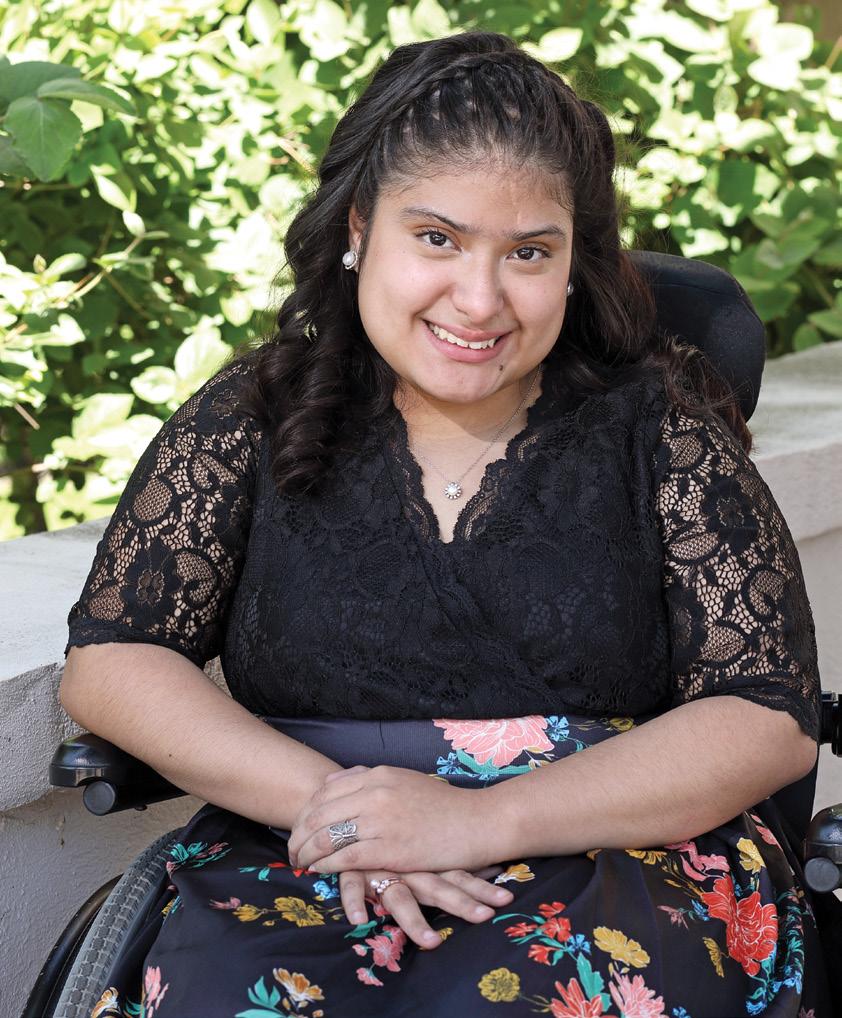
“Kennedy Krieger SIGNIFICA ESPERANZA .”
– MaríaAbove left: Dr. Lyda Holguin-Gaviria, Andrea and María, Andrea’s mom. Left: Andrea and her teacher, Gabriela Bandi.
Maddi’s heart was set on kindergarten. Kennedy Krieger made sure cancer wouldn’t get in the way.
It was the morning of Maddi’s big day—her first day of kindergarten. She’d been looking forward to
it for as long as she could remember. Waving at everyone and giddy with excitement, she told her parents, Amanda and Megan, she would walk to her classroom all by herself.
“She was all smiles, with her feeding tube, double lumen Hickman” (a central line for medication), “no hair and backpack as big as she was,” Megan says.
Six months earlier, in March of 2022, Maddi, now 6, had been diagnosed with Burkitt lymphoma, a fast-growing type of cancer. It had started out as a tiny lump in her cheek but had quickly spread through the soft tissue of her face. To treat the tumor, doctors administered chemotherapy drugs both intravenously and intrathecally— injected directly into her spinal canal. Maddi was in the hospital for weeks. Megan decorated her hospital room like a schoolroom, and they did pre-K schoolwork when they could. Over the summer, once Maddi was back at home in Carroll County, Maryland, Amanda and Megan started noticing some neurological side effects—challenges in her cognition and learning—from the chemo. One of her physicians referred her to Kennedy Krieger Institute’s Oncology Clinic, part of the Institute’s Department of Neuropsychology.

“While intrathecal treatment is life-saving, it can have cognitive impacts,” explains Dr. Lisa Carey, the department’s educational specialist.
In the Oncology Clinic, neuropsychologists provide vital assessments, referrals, resources and more for children and teens who are receiving or have completed cancer treatment. Dr. Carey then works with staff members of patients’ schools through the Institute’s Hospital Education Liaison Program (HELP), which she and Dr. Lisa Jacobson, the clinic’s director, co-founded in 2020 to advise families and schools on how best to support students receiving care at Kennedy Krieger for chronic medical conditions.
After performing a neuropsychological assessment of Maddi, Dr. Jacobson talked with Amanda and Megan about their daughter, how chemo had affected her, and how Kennedy Krieger could help her. “I definitely felt heard, and that built up trust,” Amanda says. “She asked if we’d like help talking with Maddi’s teachers, as school was about to start.”
Amanda and Megan took Dr. Jacobson up on that offer. They didn’t want to have to tell their daughter she couldn’t start school on time.
Dr. Jacobson referred them to Dr. Carey and HELP. A few days later—five days before the start of school—Dr. Carey met with Maddi’s teachers and other school staff members.
“We walked through all that Maddi would need in a typical day of school,” Dr. Carey says. She also shared a letter with the school team summarizing all the necessary accommodations. “Everyone was in agreement that if anything else came up, we’d just come back to the table.”
“It all lined up perfectly for Maddi” to start school right on time, Amanda says.
Megan, a special educator, first met Dr. Carey some years ago, when Dr. Carey was working as a special education consultant at the school where Megan was teaching. “When I was starting out as a teacher, I didn’t know how cancer treatment

could affect a student,” Dr. Carey says. And before her daughter’s diagnosis, Megan hadn’t known, either. That’s why the knowledge, resources and recommendations provided through the Oncology Clinic and HELP are so invaluable to parents and teachers of children with a history of cancer.

Drs. Carey and Jacobson continue to follow Maddi as she prepares for her next big milestone—first grade. “We like to check in with our patients at key developmental timepoints” into young adulthood, Dr. Jacobson explains. “That way, we’ll identify any challenges early on, and make sure our patients are on a good trajectory.”
Amanda and Megan know that for Drs. Carey and Jacobson, “Maddi isn’t a one-time patient,” Megan says. “I know they have other patients, but we feel like we’re a priority, because they’re always there for us.”
Whenever Maddi has to miss school for a medical appointment, she always wants to go right back to class once it’s over. Her excitement for school has only grown since her first day of kindergarten. When Maddi got home from school that day, she joyfully recounted the experience to her parents and little brother, Levi. “She had even more energy than when we dropped her off,” Megan says. “It was everything she’d hoped it would be.”
“It was the best day of my life,” Maddi says.
“I know they have other patients, but we feel like we’re a priority, because THEY’RE ALWAYS THERE FOR US.”
– Megan
Kennedy Krieger’s Black Affinity Group thrives on camaraderie while building, offering and highlighting opportunities for mentorship, networking, and personal and professional growth.
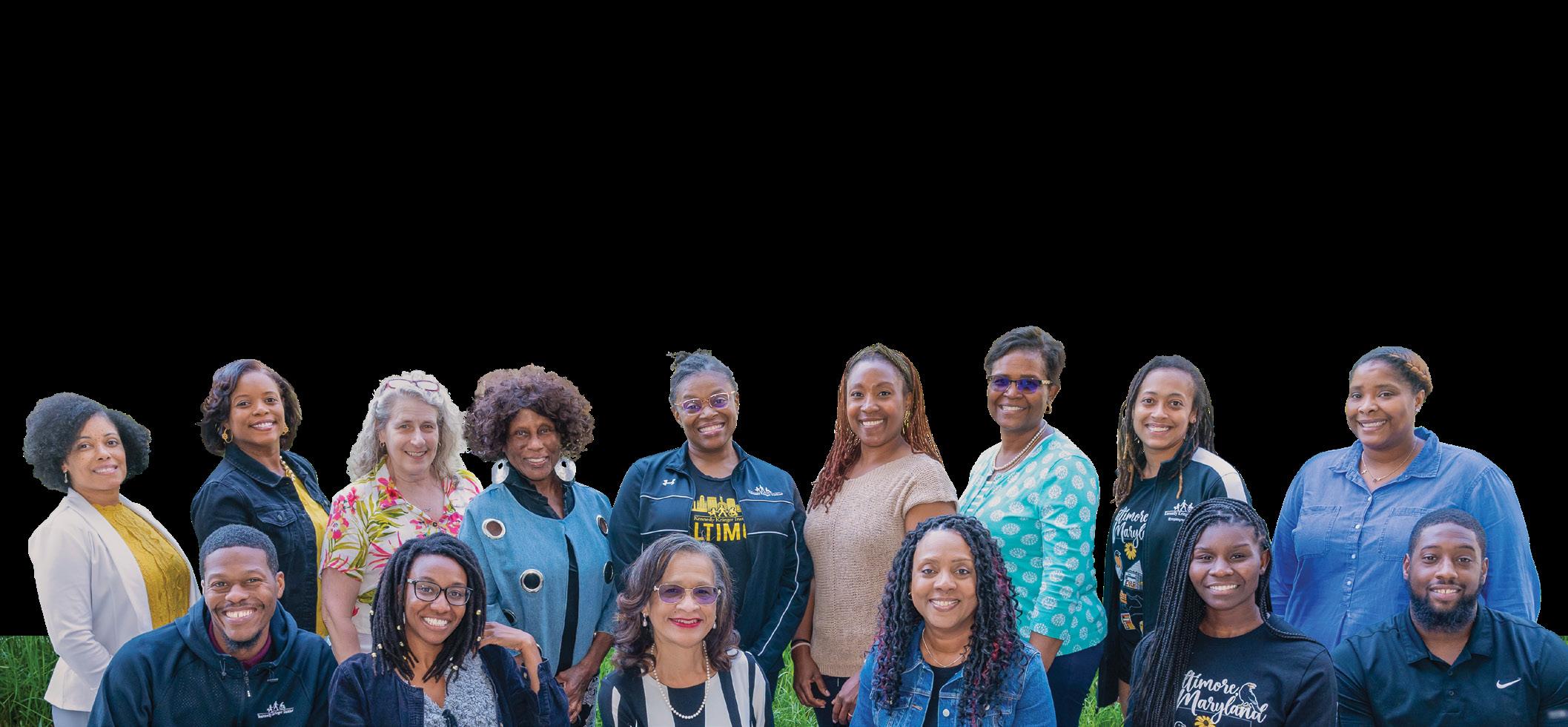
Upbeat music plays in the background as members of Kennedy Krieger Institute’s Black Affinity Group, affectionately known as the B.A.G., join their lunchtime Zoom meeting, checking in with each other and wishing everyone a great weekend.
Members take turns leading the biweekly Friday meetings. This week, Jasmine Preston leads, starting with reading the group’s mission statement, which begins: “The B.A.G. is a safe space to discuss, unpack and improve the experiences of Black staff at Kennedy Krieger.”
The B.A.G. is the Institute’s first affinity group for employees. Open to everyone—solidarity partners and allies—it’s chartered to support staff members who are Black.
“This community is amazing,” says Preston, a child care aide for the Institute’s Center for Autism and Related Disorders. “The moment I first heard of it, I wanted to be a part of it. I appreciate everyone in this community, and I love how it is growing.”
The group formed in September of 2020. “There was a lot going on in the realm of social justice at that time, and we realized we were coming to work as if everything was fine, while dealing with additional levels of stress, anger and frustration, and on top of that, being isolated during the pandemic,” explains Deeannah Taylor, project manager for administrative, clinical and educational operations, and one of the group’s founding members.

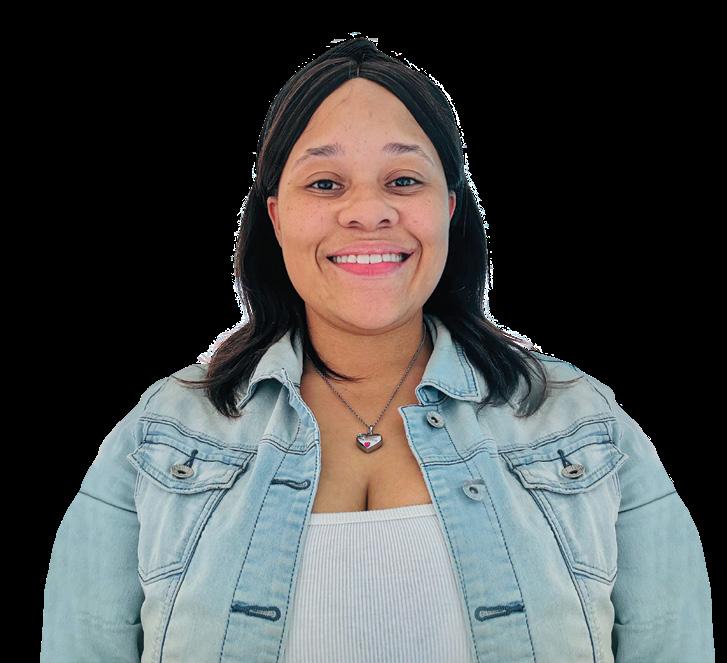
The B.A.G.’s inaugural meeting enthusiastically welcomed 24 employees eager to explore the first established safe space of this kind at the Institute. Attendance has only grown since then. The group sends out a monthly newsletter—highlighting members, meetings, reflections and more—to keep everyone connected. They also meet in person several times a year for events, celebrations and community service opportunities, including a successful coat drive this past winter.
“While we live in different counties, we work primarily in Baltimore City,” explains Shellie Williams, vice president of nursing, chief nursing officer and the group’s faculty sponsor. “Volunteering in the city aligns who we are as individuals with who we are as professionals.”

The B.A.G. has also played an important role in developing a new mentorship initiative, Building Leaders Inside and Out (BLIO), working with representatives from the Institute’s Neurodiversity at Work program, Human Resources department, administration team, and Office for Health, Equity, Inclusion, and Diversity. BLIO consists of two branches: Building Within, led by Tracee Hutt-Brown, assistant clinical director of the Institute’s Psychiatric Mental Health Program, focuses on mentoring current employees, while Building the Bridge, led by senior physical therapist Nia Wallace Ward, turns its attention toward mentoring Baltimore City high school students, strengthening the relationship between Kennedy Krieger and the community.
The B.A.G. now numbers more than 100 members, with varying years of service, spanning different roles and departments, and representing the Institute’s 20-plus locations. “We really are a village,” says Tracee Hutt-Brown, “and we’re all about supporting each other and saying, ‘Yes, you matter.’”
“We appreciate the support and encouragement of senior leadership in providing this invaluable resource for employees,” adds Chidi Agha, financial manager for the Institute’s Behavioral Psychology Department, “and we share in the Institute’s excitement in the development of additional employee resource groups.”
“This community is amazing.”
– Jasmine Preston
Kennedy Krieger’s Neurodiversity at Work conference gathered advocates, individuals with disabilities, educators and employers from across North America.
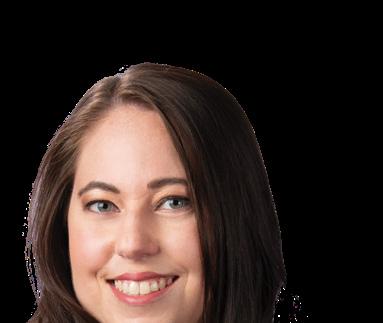
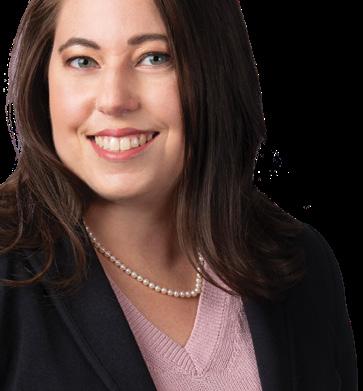
Kennedy Krieger Institute’s first two-day conference dedicated to supporting and increasing employment outcomes for individuals with disabilities drew nearly 300 attendees—from 26 states, Puerto Rico, Canada and Washington, D.C.
79 PRESENTERS DAYS
“Our goals were to bring individuals together, to educate, and to create discussion and community,” says Stacey Herman, the Institute’s assistant vice president for neurodiversity and community workforce development. “From all these perspectives, the conference was a tremendous success. It was just an amazing, incredibly impactful event.”
Held this past March in downtown D.C. and fully accessible to individuals with disabilities, the conference facilitated collaboration and promotion of best practices for supporting individuals with disabilities in community, academic and workplace environments. With employers, adult service-providers, advocates and individuals with disabilities all in attendance, it was a unique opportunity for networking and learning from others.
The conference offered a plethora of presentations and breakout sessions from which to choose.
Employers listened to individuals with disabilities about how to make it easier for individuals with disabilities to interview for jobs, and how to create a more inclusive working environment. Other employers shared how they’d opened up their workplace to people of all abilities. Service providers enhanced their knowledge on how to support adults with disabilities through the job search process.
“Our goal is to come together to create change.”
Both keynote speakers were individuals who identify as having a disability: Haben Girma, a human rights lawyer and author and the first Deafblind person to graduate from Harvard Law School, gave the opening keynote address, while the morning keynote for Day 2 was given by Cody Clark, a professional magician and autistic self-advocate. The conference was organized and hosted by the Institute’s Neurodiversity at Work program, which takes a multifaceted approach to community engagement and hiring and retaining individuals of all abilities as part of the workforce. It was not the program’s first conference, but the first to last more than a day. Neurodiversity at Work also runs several person-centered programs for young adults with neurodevelopmental disabilities, providing participants with internships, one-on-one mentoring and job training. The next neurodiversity conference is slated for the fall of 2024.
“Our goal is to come together to create change,” Herman says. “Through this conference, we were able to make incredible strides toward ensuring that people of all abilities have equal opportunities to be successful in the workplace.”
Neurodiversity at Work program: KennedyKrieger.org/Neurodiversity or scan this code
Neurodiversity at Work conference: KennedyKrieger.org/NDW23
Neurodiversity training for employers: KennedyKrieger.org/EmployerTraining
BREAKOUT SESSIONS 41 39 SPONSORS 11
– Stacey Herman
This summer, Kennedy Krieger opens new locations to serve more patients and students from across Maryland—and beyond.
In 2022, Kennedy Krieger Institute served more than 27,000 patients and students, and their families, at campuses across central Maryland. In 2021, that number was 26,000, and the year before that, 25,000. The Institute’s reach continues to expand, transforming the lives of more patients and students each year. “Our services are vital and life-changing,” says Dr. Bradley L. Schlaggar, the Institute’s president and CEO. “It’s part of our mission to bring our transformational care and expertise to as many people who need it as possible.”
This summer, Kennedy Krieger opens the third outpatient location of its International Center for Spinal Cord Injury, in White Marsh, Maryland, just north of Baltimore. “The White Marsh location will continue the tradition of delivering lifelong comprehensive medical and rehabilitative care to individuals with paralysis related to spinal cord dysfunction, using trailblazing techniques and technologies,” explains Dr. Cristina Sadowsky, the center’s clinical director.
Like the center’s other locations, the new location will offer the latest equipment and advanced robotic technologies designed to improve functioning for those with spinal cord injuries and
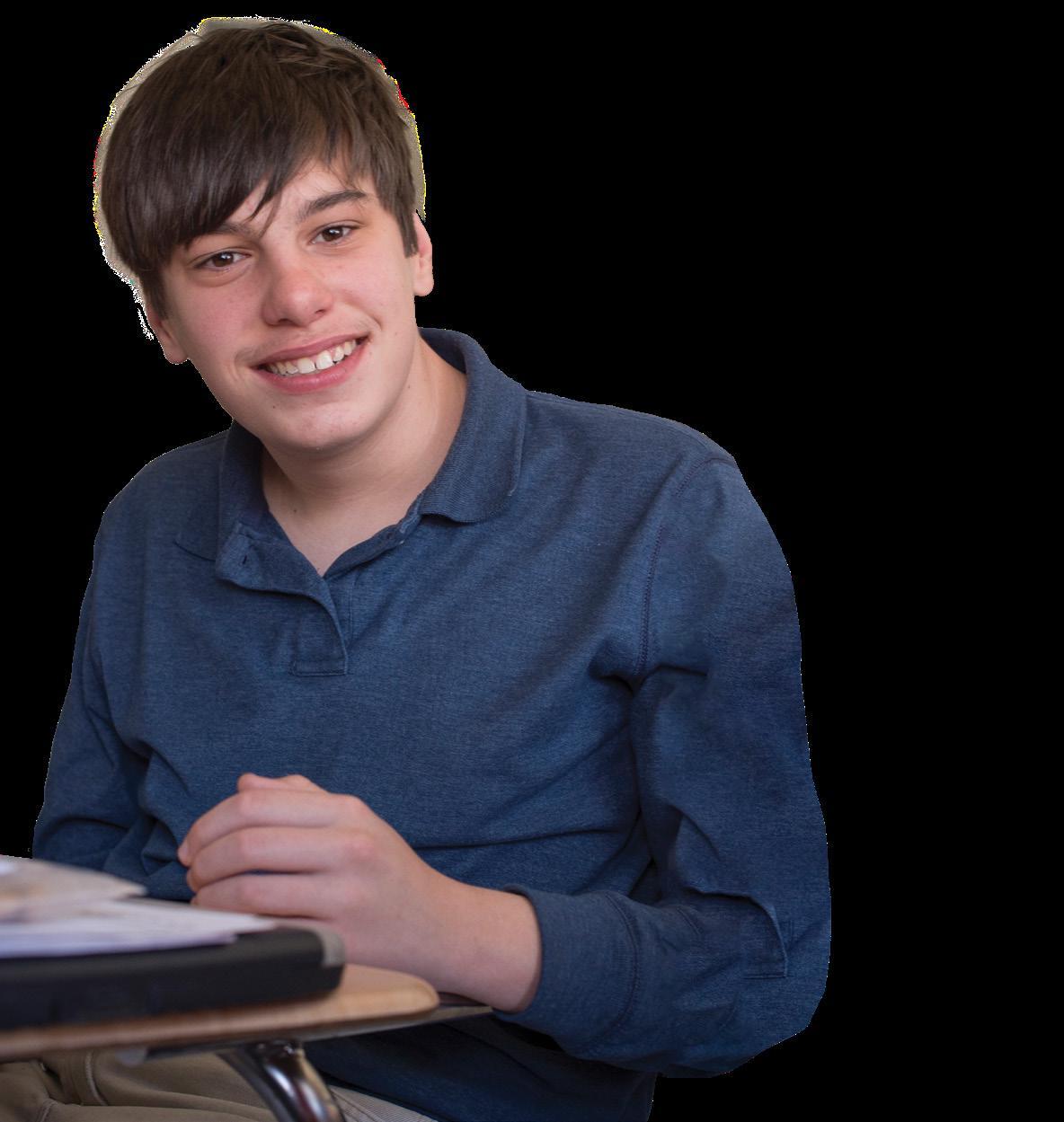
Also this summer, the Institute opens its fifth school, Kennedy Krieger School: Southern Maryland Campus, in St. Mary’s County, serving students ages 5 to 12 with autism. “We’re thrilled to finally be able to bring our programs and services closer to home for students in southern Maryland,” many of whom have been traveling long distances each day to attend school at Kennedy Krieger in central Maryland, says Dr. Linda Myers, vice president of school programs at Kennedy Krieger. All five of the Institute’s schools are part of the Maryland nonpublic school community and serve publicly funded students with disabilities referred from local school systems across the state.
since 2018, provided
Kennedy Krieger will also open an innovative early childhood learning center this summer in Baltimore County, near northwest Baltimore City, providing a comprehensive, family-centered education for children ages 3 to 5. Students will learn in an inclusive environment that encompasses the classroom needs of typically developing children as well as those of children with neurodiverse needs. The center will serve as a model for educators across the nation. The Maryland State Department of Education (MSDE) awarded the Institute $7 million to open the center. “A top priority for the MSDE is to advance equity and inclusion for young children and their families, which will lead to better learning outcomes,” says Dr. Nancy Grasmick, chair of Kennedy Krieger’s board of directors and a former Maryland state superintendent of education. “This completely aligns with our goals of advancing learning opportunities for as many children as we can, starting with early childhood education.”
“Our services are vital and life-changing.”
– Dr. Bradley L. Schlaggar– Dr. Stewart Mostofsky
Kennedy Krieger is worldrenowned for its critical, life-changing discoveries and advancements, few of which would be possible without research participants.
As one of the world’s top centers for research on neurodevelopmental disorders, Kennedy Krieger Institute supports hundreds of research studies, including clinical trials and observational studies, each year.


“Our goal is to make sure that, in the long run, every person affected by a neurodevelopmental or neurological condition has access to effective treatment,” says Dr. Erika Augustine, director of the Institute’s Clinical Trials Unit. But identifying new treatments starts with research, and many research studies require participants—children, teens or adults, both with and without the condition being studied. Lacking participants, these studies cannot take place.
Clinical trials involve testing whether a drug—either a newly developed drug or one that’s been around for a while—can prevent or treat a condition. They also study the effectiveness of medical devices and therapies. Observational studies, on the other hand, focus on identifying the characteristics and progression of a medical condition by looking at associations between a genetic mutation and a person’s mobility or cognition, for instance, or tracking how people with a disease change over time, explains Chief Science Officer Dr. Amy Bastian, director of the Institute’s Center for Movement Studies.
Fortunately for those interested in participating, there are plenty of research studies at Kennedy Krieger from which to choose. For example, researchers at the Institute’s Center for Neurodevelopmental and Imaging Research are studying autism and ADHD to better define these conditions and identify potential therapeutic approaches. “The goal of our work is to improve how we care for and help children facing neurodevelopmental challenges,” says Dr. Stewart Mostofsky, the center’s director. “Without our study participants, we would not be able to make progress toward these goals.”
In one of the center’s studies, researchers are investigating imitation ability in children with autism and related disabilities, such as ADHD. Imitating other people’s actions is something that children without autism generally do very easily, and it’s part of how children learn a wide range of skills. “For children with autism, imitation does not always come naturally,” Dr. Mostofsky explains. The study uses cutting-edge video technology to look at children’s abilities to imitate fun dance movements, and it’s showing that children with autism have more difficulty with imitation than children without autism. “We aim to use this engaging task to improve autism screenings and develop new interventions,” Dr. Mostofsky says.
Children and adults with and without autism ages 6 to 40 may participate. They’ll make two half-day visits to the Institute’s East Baltimore Campus, take an IQ test and receive a summary of the results and $50. In other studies at the center, participants may also receive an MRI scan of their brain and/or sleep study results, and up to $150. Email CNIR@KennedyKrieger.org to learn more.
We welcome your help! Please visit KennedyKrieger.org/Participate or use the QR code to learn more about participating in research at the Institute.
“Without our study participants, we would not be able to make progress toward these goals.”

Scan the QR code or visit KennedyKrieger.org/News for these stories and more!
Loneliness Is on the Rise. What Can Men Do to Feel Connected? (May 15, 2023)
Hear what Institute clinical social worker Darius Sanders suggests.
Amid ADHD Med Shortage, Parents Fear Sending Unmedicated Kids to School (April 17, 2023)
Read what Institute child and adolescent psychiatrist Dr. Aditya Pawar thinks.
Find out what’s happening at Kennedy Krieger in real time and join the conversation! To find us on social media, scan the QR code or visit: KennedyKrieger.org/Connect
April 3, 2023: Dr. Carmen López-Arvizu, a child and adolescent psychiatrist at Kennedy Krieger, spoke to @baltimorebanner about the stigma surrounding #MentalIllness, the need for increased understanding of #MentalHealth issues, and the importance of access to treatment. https://bit.ly/3G3dru1
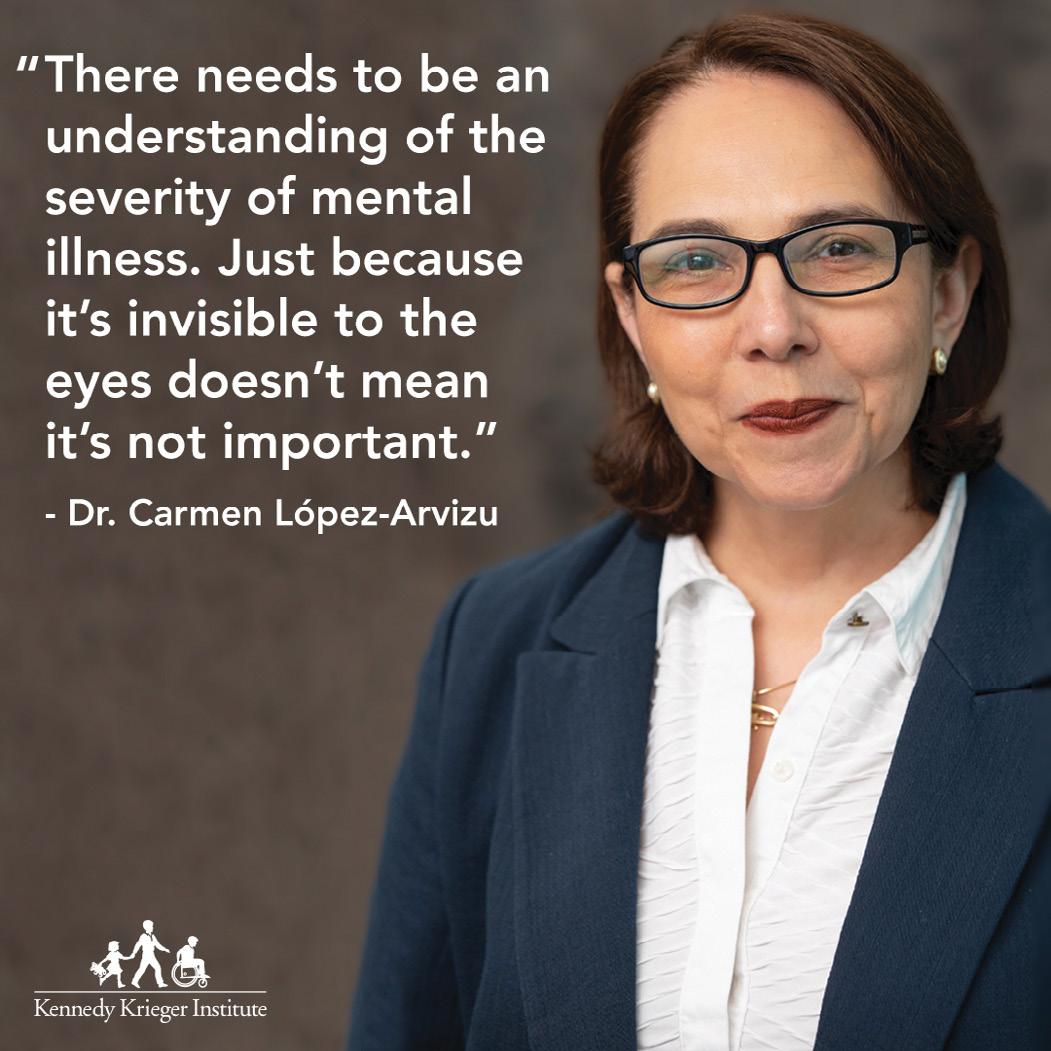
Hospitals Intensify Efforts to Treat Long COVID in Kids and Teens (April 11, 2023)


Dr. Laura Malone, co-director of the Institute’s Pediatric PostCOVID-19 Rehabilitation Clinic, weighs in.
June 2, 2023: Guns are the leading cause of death for children and teens in the U.S. Today, we unite with our healthcare colleagues across the city and nation to #WearOrange in recognition of National Gun Violence Awareness Day.
#EndGunViolence #GunViolenceAwarenessMonth
#GunViolenceAwarenessDay
#NationalGunViolenceAwarenessDay
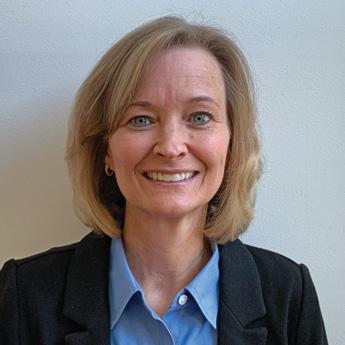
Our events are a great way to bring family and community members together! Scan the QR code or visit KennedyKrieger.org/Events to register, sponsor or explore events.
2nd Annual Center for Autism and Related Disorders
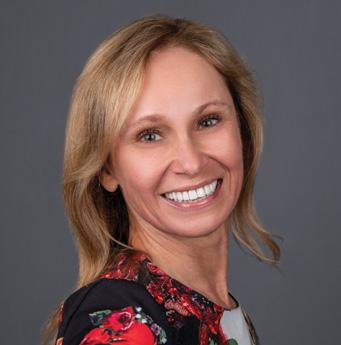
Charity Golf Outing | Monday, August 14: Join us for a round of golf at the Country Club of Maryland in Baltimore to raise funds for autism services at Kennedy Krieger.

Earlier this year, Kennedy Krieger received the Golisano Health Leadership Award from Special Olympics Maryland at the 2023 Maryland State Police Polar Bear Plunge, recognizing the Institute’s efforts to expand Special Olympics Maryland’s Healthy Athletes program and to ensure its youngest athletes receive the healthcare they need. The Maryland Patient Safety Center named Kennedy Krieger a Circle of Honor winner as part of the 2023 Minogue Awards for Patient Safety Innovation. The award recognized the Institute’s universal screening program that helps assess suicide risk among patients, including those with neurodevelopmental disabilities.
In May, The Maryland
Daily Record honored
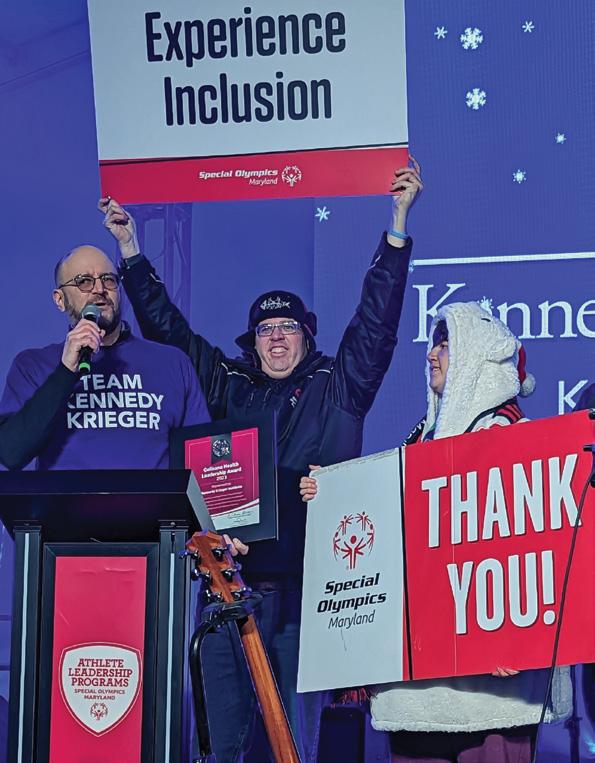
34th Annual Festival of Trees | Friday–Sunday, November 24–26: This three-day extravaganza benefits the patients, students and programs at Kennedy Krieger, and kicks off the holiday season for families throughout the region.

NCRSF Golf Tournament
Baltimore Running Festival
2nd Annual Barrels & Bonfires
Monday, October 2
Saturday, October 14
Friday, November 3
Dr. Alec Hoon, former director of the Phelps Center for Cerebral Palsy, and Beth DiPietro, assistant vice president of inpatient nursing, among its 2023 Health Care Heroes. It also honored Dr. Cristina Sadowsky, clinical director of the International Center for Spinal Cord Injury, as one of the Top 100 Women in Maryland.
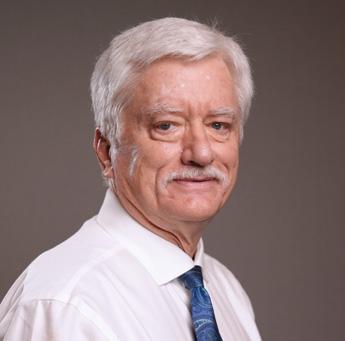
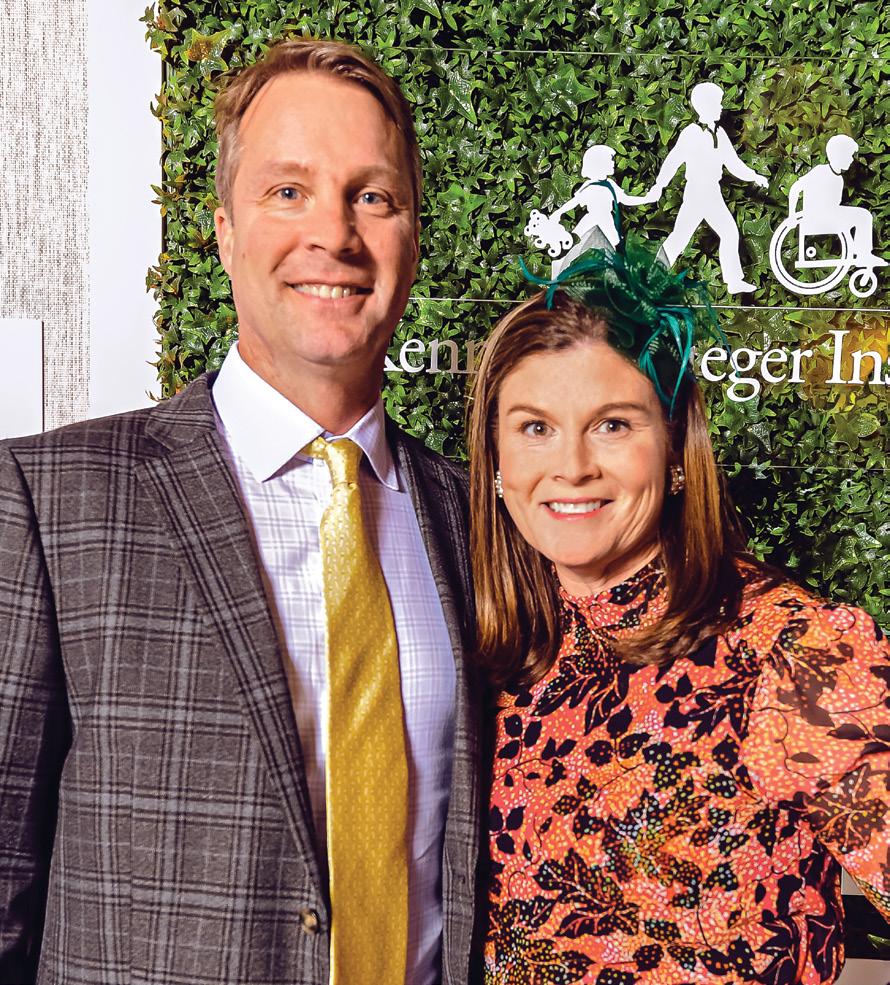
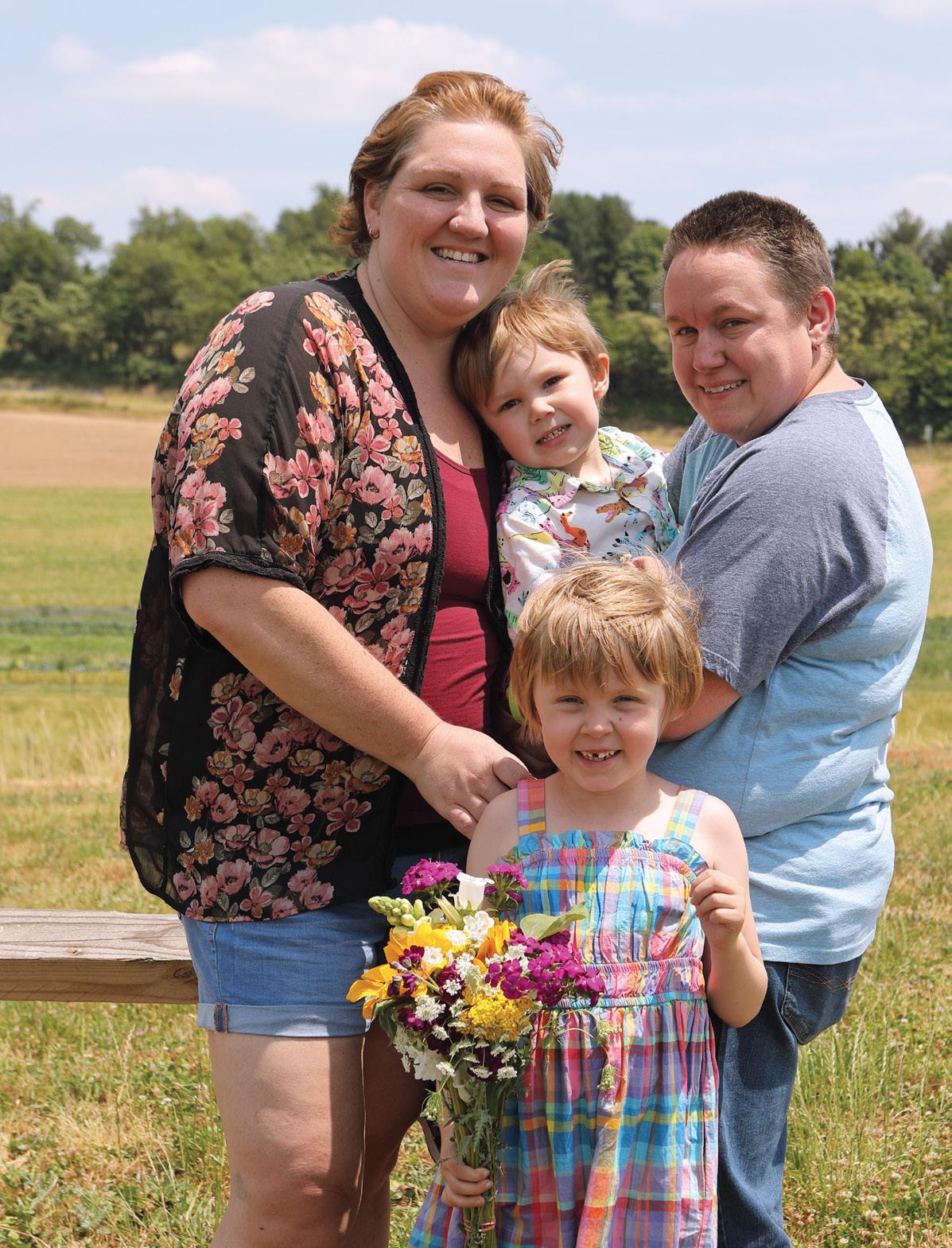
When you give to Kennedy Krieger Institute, you’re helping us pursue every possibility for children like Maddi. Your gift supports groundbreaking education, research and care that bring hope and transform lives. Thank you so much!
Make your donation today! Visit KennedyKrieger.org/PS23 or use the QR code, or mail us your donation using the return envelope inside this issue.
“I give to Kennedy Krieger because I am a firm believer in the Institute and the exceptional and life-changing work it is doing to improve the lives of our children. It is an honor to be involved with WIN and to witness firsthand how Kennedy Krieger is changing lives.”